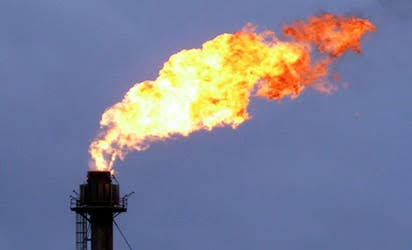Report says all Ghananians (100 percent of Ghana’s population) at risk, eight in every 100 deaths recorded in Ghana are caused by air pollution, which has also Impoverishes the West Africa nation by $2.5bn or 4.2 percent of annual GDP
At least 16,000 Ghanaians are killed by air pollution every year, a study commissioned by the World Bank reveals.
Platforms Africa reports that the study notes that eight in every 100 deaths recorded in the West African country is caused by air pollution, adding that 00 percent of Ghana’s population is exposed to air pollution levels exceeding World Health Organisation guidelines, ‘yet actions to reduce air pollution have been slow.’
READ ALSO: DANGER! Gas cylinder in your kitchen is expired? Here is how to check!
Nigerians To Pay More for Electricity As Tariff Hike Begins Wednesday
How Oil firms burnt $787.7m worth of Nigerian gas, polluted air in 7 months
Briefing stakeholders at a dissemination workshop on Friday, Pierre Laporte, the World Bank Country Director, said the study was carried out in collaboration with the Ghana Environmental Protection Agency (EPA) to determine the levels and effects of air pollution in the country.
The World Bank-funded Improving Air Quality Planning and Management for Better Human Health and Environment study concluded that air pollution was responsible for eight percent of mortalities in the country.

‘Air pollution is deadly, causing or contributing to heart attacks, strokes, lung cancer, and other respiratory diseases. It is Ghana’s number one environmental risk to public health and its sixth-ranked overall risk to health,’ Laporte said.
Also, the World Bank official disclosed that air pollution cost the country $2.5bn or 4.2 percent of annual GDP, based on 2017 economic output.
For this reason, he said the World Bank was implementing its pollution management and environmental health pilot project in collaboration with the EPA to address ambient air pollution in the country.
Through the collaboration also, Laporte said the Bank and EPA would develop a full-scale air quality management plan for the capital and scale it later to cover the entire country.
‘Our attitude towards the environment is the main cause of air pollution,’ said Ebenezer Appah Sampong, Deputy Executive Secretary of EPA Ghana.
He added that through the collaboration with the World Bank, Ghana would develop a stand-alone policy on air quality planning and management to deal with the situation effectively.





